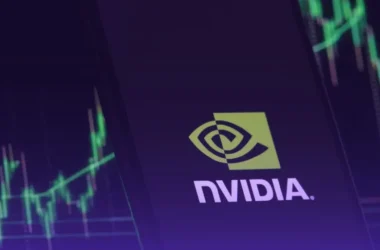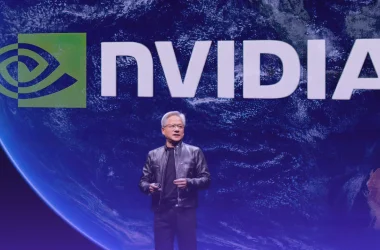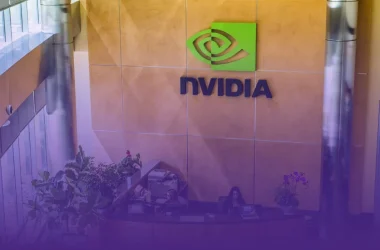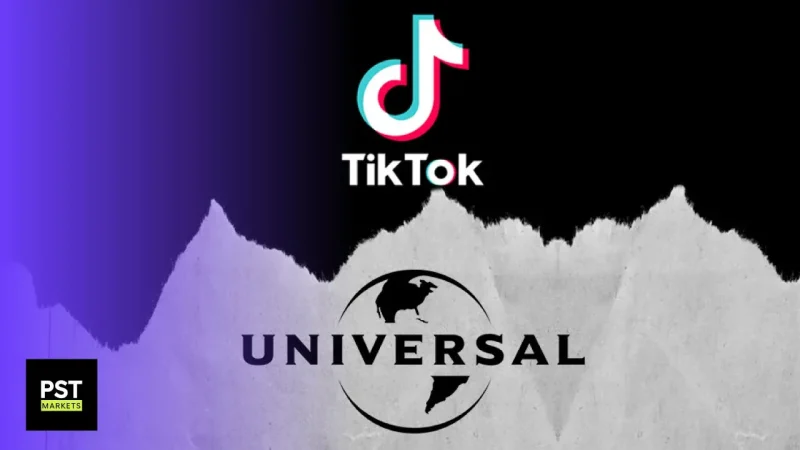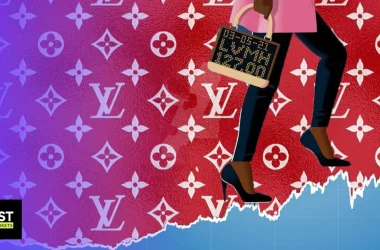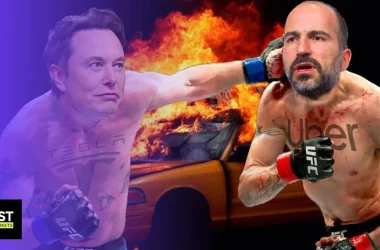Universal Music Group, or UMG (OTCMKTS: UMGNF), the powerhouse behind chart-topping artists like Taylor Swift and Drake, shocked the entire world when it pulled all of the music from artists it represents from TikTok, after its contract with the social media site expired. UMG claimed that TikTok has been refusing to pay their artists their well-deserved dues, and expressed its fears of AI-generated music taking over TikTok and stealing the money of real artists by mimicking them.
This is a nightmare that UMG wants to avoid at all costs, but TikTok fired back by calling UMG greedy and arguing that their decision hurts both the artists and the fans. Now, if you’re an investor in UMG’s or any other music label stock, this news might have given you a scare. But, the outlook for these stocks is strong even if the UMG and TikTok issue is not resolved.
UMG vs. TikTok
According to UMG, TikTok attempted to bully the record label into accepting a licensing deal that is worth less than the previous one. It went so far as accusing TikTok of trying to build a music-based business, without paying fair value for the music. UMG, the world’s largest music company, made it clear that it has three main concerns with TikTok, which need to be addressed for this contract to be renewed. These concerns are: securing a higher compensation for artists, protections against AI-generated music flooding the platform, and bolstering online safety. On this note, UMG also accused TikTok of sabotaging smaller artists by selectively removing their music from the platform and promoting UMG’s more famous performers instead.
TikTok fired back a response bluntly calling UMG greedy. According to TikTok’s statement, the company had managed to reach agreements that prioritized artists with every other label, signaling UMG out as the only music label to have issues with its compensation. Tik Tok tried to hammer this point in by saying that UMG’s actions are self-serving and not in the best interests of the artists or the fans.
Music Labels’ Fair Share
The fight between record labels and TikTok dates back to 2022 when TikTok was on track to earn $12 billion. At this point, the label began asking the platform to share the wealth with rights holders. Then in February of last year, TikTok started limiting the number of songs users in Australia could choose for their videos. Worrying that TikTok was testing the value of music on the service and its impact on user behavior, music labels thought TikTok would use this experiment against them in contract negotiations.
Its not clear whether or not that was the case, but two major record companies, Warner Music Group Corp. (NASDAQ: WMG) and Sony Music (NYSE: SONY), have reached new licensing deals with TikTok. Unfortunately, the exact terms of these deals were not made public so its difficult to determine whether UMG’s accusations hold water or vice versa. But, this could help explain why UMG decided to compare TikTok’s treatment of its artists with that of other established platforms such as YouTube. UMG stated that TikTok pays artists “a fraction of the rate that similarly situated major social platforms pay.” But if this is the case, its hard to image that WMG and SONY are not joining with UMG to demand more from TikTok.
Reaction
Interestingly, the music community which is at the center of this feud has mixed views on the subject. Grammy-winning producer Jack Antonoff criticized UMG’s decision and called it backwards, while smaller and foreign artists supported the decision because removing big stars’ music could give smaller artists more exposure. TikTok users no doubt noticed UMG’s departure and TikTok is definitely feeling it too. Since the start of February, around 33% of TikTok’s top music streams have left the platform. With no end to the feud in sight, it seems that this standoff will result in money being lost on all sides.
Who Has More to Lose?
Both UMG and TikTok stand to lose a lot from this feud, but TikTok arguably has more at stake than UMG. According to the music label, TikTok contributes only 1% to its total revenue, and some industry insiders say that it could be even less. Inside the music industry TikTok is known for not paying a lot, instead music labels work with TikTok to get exposure to its 1 billion users who can make their songs go viral.
In fact, artists like Halsey and Charli XCX have talked about pressure from their labels to make music that could go viral on TikTok or increase their presence on the platform. FIFTY FIFTY’s agency, ATTRAKT, invested more than $6 million in TikTok marketing to promote the song Cupid. Pulling its music catalog means UMG would be losing out on this exposure. But TikTok would be losing out on the world’s biggest artists under the UMG umbrella. This is why TikTok has more to lose from this feud. After all, the platform’s whole selling point is letting users make videos with any song on the platform. Without the world’s biggest artists, the platform loses a great deal of its appeal.
Notably, when TikTok reduced the amount of songs people could use in Australia, the platform ended up underperforming in that country. This gives some credence to UMG’s maneuvers, since based on this example the music labels have the upper hand in these negotiations. Others are also bullish on UMG’s decision to pull its catalog. Chris Pavese, President of Broyhill Asset Management which has UMG as one of its top five holdings, wrote that he supported the company’s decision since it will eventually result in a much better deal for UMG. Time will tell if Pavese’s assessment is correct.
Will TikTok Give in?
If TikTok has more to lose in this situation, then it seems inevitable that it will concede. The fact that UMG pulled its catalog from the platform is a sign that its confident it can get a better deal. Looking at a similar case from 2008 when Warner Music Group took its music off of YouTube when licensing talks stalled could provide a clue as to how this feud will end. After removing its music, it appears negotiations took place behind the scene, ultimately leading both parties to reach a deal nine months later.
What Does it Mean for Music Stocks?
However, investors should not let this dispute deter them from investing in the music industry. In fact, the industry is healthier than it has been in years. Shares of three key players in the industry, UMG, Spotify, and Warner Music Group, are each up more than 40% since the music label stocks bottomed in May, thanks to an AI-generated Drake and The Weeknd collab going viral after it was posted to music-streaming services by an anonymous user.
At the time, AI generated music was seen as a huge threat to big record labels. It still has the potential to divert money away from real musicians and music labels, but this realization in May hit UMG’s stock very hard, as it fell by 20% in two months, and Warner Music Group’s WMG stock fell by around 30% for the same period. Therefore, it’s no surprise that UMG is asking TikTok for stronger protection against AI-generated music.
As a matter of fact, UMG refusing to renew its contract with TikTok could be just about AI, rather than fighting for the rights of artists. This is because music companies were trading at all-time lows when AI-generated music was blowing up in mid-2023, which has led streaming services like Spotify and Apple Music (NASDAQ: AAPL) to increase the prices of its subscription plans, and labels to negotiate better contracts with streaming services.
Now, music stocks are doing better than ever, partially thanks to recent layoffs of hundreds of employees by both UMG and Warner Music Group, but the most important factor driving the great performance of music stock was Spotify’s decision last year to raise prices on its premium plans in the U.S. for the first time in its history.
It was just a $1 increase, but now it has begun making a real difference to Spotify’s revenue, and the labels are helped since they get about 70% of each streaming dollar. Spotify will report earnings in April, and the streaming platform is expected to post its first annual profit since its IPO in 2018, thanks to increasing its prices, two rounds of layoffs, and cuts to its money-losing podcast department. Notably, Spotify has seen no drop-off in customers since raising prices, with strong user growth in Q4 of 2023.
The company also said that it has three ways to increase revenue in the future, including more price hikes, new business lines like a “marketplace” that helps artists target their audience, and adding more users. These plans caused analysts to project Spotify to earn $3.71 per share this year, growing to $8.21 by 2027, which adds to the bullish case regarding SPOT stock and the music stocks of the labels.
Another good thing Spotify did for the labels is that it transitioned its payment model in a way that favors labels, as the streaming platform started demonetizing content that doesn’t get enough stream, which may be unfortunate for smaller artists but will ultimately benefit the labels. Additionally, music stocks benefit because music shows no sign of slowing down, and streaming is going very strong. In fact, global streams in 2023 were more than 7.1 trillion, which is a 33.7% year-on-year increase.
Warner Music Group’s CEO, Robert Kyncl, praised what Spotify was doing when it comes to paying music labels in the company’s most recent earnings call, while UMG is set to report earnings on the 28th of February. Whether or not the TikTok feud has been solved by then, the company’s future looks bright.
Disclaimer
Please visit and read our disclaimer here.

